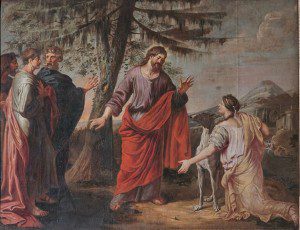Today, I interview Christine Dillon, a church planter in Taiwan with OMF International. We talk about storying in relationship to contextualization and honor-shame. Christine has written Telling the Gospel through Story: Evangelism that Keeps People Wanting More as well as 1-2-1 Discipleship. She has an excellent blog, which has been translated into other languages including Mandarin.
CONTEXTUALIZATION
JW: There is a difference between biblestorying and using stories as illustrations for the big points in our systematic theology. Could you help people understand this difference? Among the various storying tools and examples being used today, do you find a tendency for missionaries to use one or the other approach more?

CD: It’s easier to give an example. Say we want to prepare the disciple to face persecution. In a typical teaching method, we’d think through the points we want to make and then use testimonies (a kind of story), verses and maybe even refer to biblical stories to support our points.
Storytelling reverses this to some extent. Instead of asking “what do I want to teach?” I would ask, “Which stories are about persecution?”
So I might choose ones from Acts like Stephen or Acts 12 or Acts 4 with Peter and John before the Sanhedrin. Instead of using those stories to back up the point I want to make, we actually spend 40 minutes learning the story (see below). This often seems a waste of time to those of us who are using to ‘teaching,’ however it is not a waste at all. Those forty minutes start the process of hiding God’s word in our heart. When we’re done we ask questions (see previous blog for 6 questions). Usually I find we learn much more from this process than if I had decided the teaching points up front.
Of course, the person also then goes away with a story in their heart and mind from which they can continue to learn for weeks to come. When the persecution comes the story is easily remembered to minister to them as they need it. Plus, the one story has also probably taught them about many other topics that you hadn’t even considered teaching them.
JW: What are key biblical ideas, concepts or doctrines do you find East Asians understand better because you use stories (rather than standard, systemized presentations)?
I think all biblical ideas/doctrines are understood better in the “clothing of story.” Most of the world doesn’t think in abstract concepts. So for example, it is easier to show through stories that God is a God who loves and cares for the weak. That he knows everything and is all-powerful than to tell us these things.
On my blog, I’ve posted a story that may interest people. This story is from someone hearing his first story. This doesn’t happen all the time but the bike shop’s boss was able to express deep theology in simple terms.

HONOR-SHAME
JW: From your experience, what are some biblical stories that you think are especially suited to highlight honor-shame themes for East Asian listeners?
CD: I think the answer to this depends on what is causing the shame. For example, is it shame caused by being an outcast and looked down upon? If so then any story which shows Jesus caring for outcasts or using outcasts to achieve his honour (and so giving them honour).
* Leper miracles
* Woman with demon and so she is bent over (Luke 13:10-17)
It could be “shame” linked with being considered “sinful.”
* Sinful woman who anoints Jesus’ feet and wipes them dry with her hair
* Zaccheaus – Luke 19:1-10
* Prodigal son – Luke 19
* Woman caught in adultery – John 8
It could be shame linked with not being able to have a child.
* Abraham and Sarah
The possibilities are almost endless.
A different set of questions could be used for this theme if you thought it particularly important or that people want to talk about it. For example,
* Who feels shame in this story? Why?
* How does God/Jesus treat the person?
* Who has honour or is honoured? How does that happen?
To be continued…..













